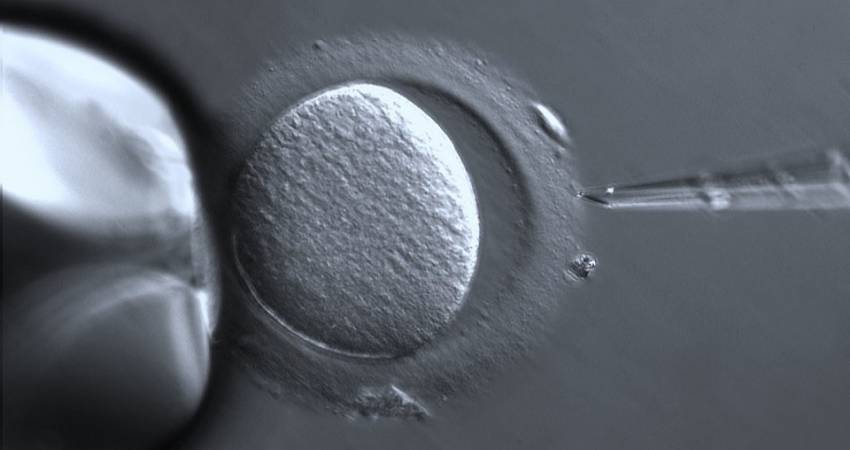
Alabama’s largest hospital pauses IVF treatments after court rules embryos are children
A landmark ruling by Alabama’s Supreme Court has prompted the State’s largest hospital to suspend all IVF treatments. The unprecedented decision found that the destruction of frozen embryos violated state laws, with the court ruling that frozen embryos have the same status as children.
The opinion referred to human embryos, which are often stored in cryogenic freezers after being produced through in vitro fertilisation, as “extrauterine children.” It resulted from a lawsuit brought by three couples who sought to sue for wrongful death, after their frozen embryos were dropped and destroyed in an accident at a storage facility.
The embryos, stored in a cryogenic nursery, were destroyed when a patient entered the nursery and accidentally dropped several of them on the floor of the facility.
In IVF, an egg is removed from the woman’s ovaries and fertilised with sperm in a laboratory. The fertilised egg, or embryo, is then returned to the woman’s womb to grow and develop.
However, couples who seek the treatment commonly produce more embryos than they use, which can be used to try again if the first attempt at pregnancy is unsuccessful The bombshell ruling will now raise questions about whether clinics can legally dispose of discarded embryos.
The ruling means that a person can be held liable for destroying embryos, under the Wrongful Death of a Minor Act. A spokesperson for the University of Alabama at Birmingham health system announcing that the pause was due to fear of criminal prosecutions and lawsuits.
Of the majority decision by the All-Republican court, Justice Jay Mitchell wrote: “Unborn children are children … without exception based on developmental stage, physical location or any other ancillary characteristics.”
A statement from UAB spokesperson Hannah Echols confirmed that fertilisation and embryo development was on pause at the State’s largest hospital.
We are saddened that this will impact our patients’ attempt to have a baby through IVF, but we must evaluate the potential that our patients and our physicians could be prosecuted criminally or face punitive damages for following the standard of care for IVF treatments,” Echols wrote in an email.
Meanwhile, the Biden administration condemned the decision, stating it was another example of the “chaos” resulting from the US Supreme Court’s ruling to overturn Roe v Wade, consequently striking down the constitutional right to abortion.
“This decision is outrageous – and it is already robbing women of the freedom to decide when and how to build a family,” Vice President Kamala Harris said in a statement posted to X.
Barbara Collura, chief executive of Resolve: The National Infertility Association, meanwhile asked, “If this is now a person, will we be able to freeze embryos?”
While the decision has sparked criticism from some, pro-life advocates were among those who welcomed the decision.
Lila Rose, head of Live Action, wrote: “Proud of the Alabama Supreme Court for acknowledging the science and using basic reason and fairness to decide that a baby conceived via IVF should have the same legal protections as a baby conceived naturally.”
Nikki Haley, Donald Trump’s sole opposition for the Republican presidential nomination, seemed to endorse the ruling, saying in a TV interview, “Embryos, to me, are babies.”
When you talk about an embryo, you are talking about, to me, that’s a life. And so I do see where that’s coming from when they talk about that.”
She later clarified her remarks in a CNN interview, stating: “I didn’t say that I agreed with the Alabama ruling.”
She went on to add: “Our goal is to always do what the parents want with their embryo. It is theirs.”
In his dissenting opinion on the court, Justice Greg Cook said that the ruling, the first of its kind in the US, “almost certainly ends the creation of frozen embryos through in vitro fertilisation in Alabama.”
“No court anywhere in the country has reached the conclusion the main opinion reaches,” he said.
Maria Maynes
This article first appeared on Gript and is published here with permission
Featured
- Abortion coercion has arrived in Ireland – the NWC are silent
- Review of at-home abortions 'needed after coercion case'
- French Govt to remind 29-year-olds of biological clock
- Huge factor in decline in primary school numbers ignored
- Germany Denies Promoting Abortion Abroad—While Funding Pro-Abortion NGOs
- Govt don’t oppose Coppinger abortion bill at 1st stage
- March for Life: Vance, the White House, and a Divided Pro-Life Movement
- Paris’ Annual March for Life Puts Euthanasia in the Spotlight
- Britain’s seemingly limitless abortion rate
- The importance of the work carried out by Every Life Counts
- Puerto Rico officially recognizes unborn children as ‘natural persons’
- Assisted suicide laws stalled by “complex” legal issues
- Yes, that hideous celebration of 300 abortions is real
- White Crosses Memorial: Dungarvan once again pays its respects to our aborted babies
- Josiah: Abortion Survivor
- Rally for Life 2025
You can make a difference.
DONATE TODAY